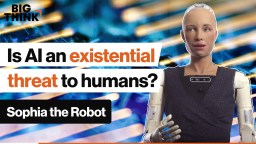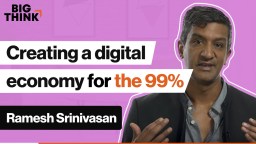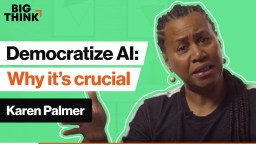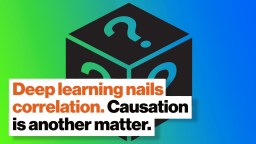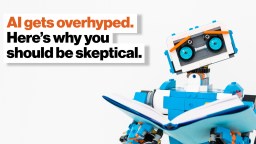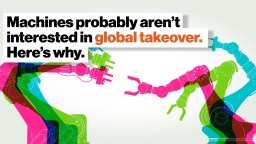machine learning
AutoML-Zero is a proof-of-concept project that suggests the future of machine learning may be machine-created algorithms.
Should humans fear artificial intelligence or welcome it into our lives?
▸
3 min
—
with
Researchers at UCSF have trained an algorithm to parse meaning from neural activity.
Through experiencing time in a nonlinear way, can artificial intelligence provide us more perspective?
▸
3 min
—
with
We encode our biases into everything we create: books, poems, and AI. What does that means for an increasingly automated future?
▸
4 min
—
with
A pragmatic approach to fixing an imbalanced system.
▸
7 min
—
with
Is there a way for more human-centered algorithms to prevent potentially triggering interactions on social media?
Without regulations, implicit bias could shape artificial intelligence into a nightmare for some.
▸
4 min
—
with
Ezra Klein offers good reasons to take a skeptical look at automation apocalypse theories.
▸
3 min
—
with
If you’re always succeeding, you’re probably not learning much.
What if consciousness is just a blip in the universe, a momentary flowering of experience that is unique to life in early technological civilizations—but eventually vanishes?
▸
16 min
—
with
Can neural networks help scientists discover laws about more complex phenomena, like quantum mechanics?
A review of the multifaceted questions we’ll ask to determine whether robots have a felt quality of experience — an “inner feel.”
▸
5 min
—
with
Why do people with bigger hands have a better vocabulary? That’s one question deep learning can’t answer.
▸
2 min
—
with
Move over deepfakes. Multi-agent artificial intelligence is poised to manipulate your mind.
These questions can help us think more critically about new developments in artificial intelligence.
▸
7 min
—
with
The fast-food company recently agreed to acquire a tech company whose “speech-to-meaning” technology might soon be interpreting customers’ orders.
The fourth wave of the Industrial Revolution is here. If change is led by the right people, we will have ethical machines, says Intel’s Lama Nachman.
▸
4 min
—
with
What most people worry about when it comes to artificial intelligence likely comes from science-fiction fantasy.
▸
4 min
—
with
Correlation doesn’t equal causation — we all know this. Well, except robots.
▸
7 min
—
with
An A.I. named Aristo was able to use its language and logic skills to pass a standardized exam with flying colors.
This unsettling new understanding of vegetative patients raises medical ethics issues.
Machine learning, which actively protects you from all sorts of dangers, including fires, explosions, collapses, crashes, workplace accidents, restaurant E. coli, and crime.
▸
with
Why Silicon Valley wants to automate 3.5 million blue-collar truck drivers out of existence.
▸
3 min
—
with
The new design could help the robot explore disaster zones and other dangerous environments.
Empathy is what allows us to understand works of art, right?
Almost all experts agree that coding will become nearly as ubiquitous as literacy in the future. But the nature of coding in the future may be very different.
The world’s always been changing, but it feels like it’s never changed so quickly as it does now. What life skills will that render obsolete?
IT has been one of the fastest growing and most lucrative industries for a long time. But is that going to be true in the future?
The new system could soon greatly improve foreign-language interactions.

